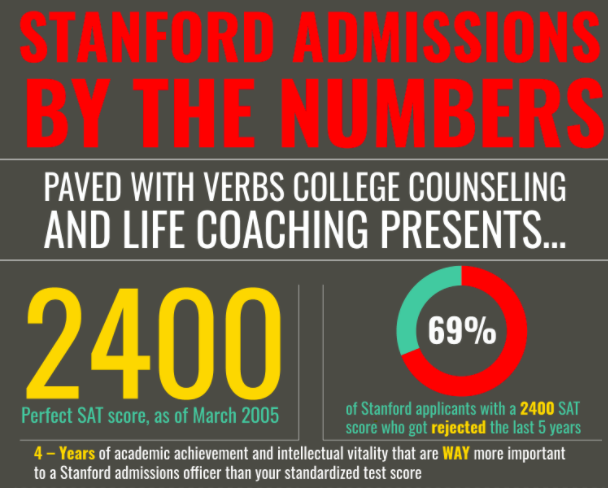|
Let us start with a moment of silence for the Class of 2020 and everything they've lost because of the shutdown: graduation, their last season of high school sports, leadership opportunities, prom, shenanigans with friends, many of whom they might never see again. It's tragic. When I think back on how much my friends meant to me and how hard it was to say goodbye at graduation, my heart sincerely breaks for the seniors. But all high school students have lost some kind of opportunity because of this pandemic, whether it's your shot at making varsity or a summer internship or a teen travel opportunity. If you have lost an opportunity due to the corona virus, HERE IS WHAT YOU MUST DO NEXT: Think about what you wanted to do this summer -- service work in Mexico, sports camp at a local college, education enrichment program -- and find a related activity or venture that you can do from home. It might sound obvious. It might sound lame. If you won a prestigious scholarship to learn Arabic in Egypt, learning Arabic from your living room is going to be a huge letdown. BUT. It will tell colleges something really important about you. It will tell them that you are doing what you do for a reason. Let me repeat: It will tell them that you are doing what you do for a reason. As an alumni interviewer, the number one most important thing I want to learn about an applicant during the interview is, "Does this person love learning?" If they don't, I won't recommend them for admission. I also want to know, "Is this person doing what they're doing for a reason?" Because a weird number of today's brightest students... don't. They're doing things someone said would help them get into college. Are they particularly passionate about it? Are they asking questions about it no one has ever asked before? Have they gone above and beyond to further their knowledge and expertise at this, or are they simply doing what someone told them to do? Too often, the answer is no. And colleges try to filter out this kind of student. After all, as I wrote in The Two Biggest Mistakes Seniors Make on Their College Applications: The advantage of going to a top school isn't book learning. It's that top schools have money, staff, faculty and resources to make anything possible. When I was at Stanford, there was this amazing introductory seminar called Inside the Jet Engine. It was for non-technical students who were curious about jet engines. For one of the class sessions, students took a bus to SFO, flew to Arizona to tour Boeing for the afternoon, and then flew back to school that evening. Are you the kind of student who would be excited about this opportunity? Or would you be too busy trying to get A's in all your pre-med courses to care? If you can prove to admissions officers that you are someone who creates and takes advantage of opportunities because you are excited about them, you will increase your chances of acceptance. So say you won this prestigious language scholarship to study abroad and learn Arabic this summer. The trip gets canceled because of COVID, so you give up on learning Arabic. What this tells me is that you never really cared about learning Arabic in the first place. You just wanted the scholarship because it was prestigious. To really impress me as an interviewer or someone in the admissions office, you would show resilience, determination, and commitment. You would show that you were doing what you were doing for a reason. Which may mean taking an Arabic class online. Similarly, if your summer plans included an internship at a company that is now closed, I would be really impressed to learn you took the initiative to get in touch with your would-be supervisor to come up with a project or contribution you could make from home. If your plans involved service work, you can brainstorm creative ways to give back to the community from home -- or figure out what skills you could learn now, at home, so that once you can go out and volunteer again, you're able to do so more effectively. After all, as I wrote in Here's What Colleges REALLY Think About Volunteer Work, it's always good to have community service hours... but it's a little strange to see someone who's spent hundreds of hours doing the exact same thing in an organization, without showing any growth or taking on additional responsibilities. Can you use this time to do an online CPR/First Aid course? Get a kitchen safety certification? Take a course in Medical Spanish? This would show me that you're someone who's doing what they're doing for a reason, and nothing -- not even this crazy virus -- will stop you from learning, progressing, contributing. Given the choice between you and someone who spent their whole summer studying for the SATs... I'd pick you, even if the other applicant got a higher score than you. (Trust me: the Stanford admissions officers I know are much more interested in how you spent the last four years than they are in how you spent four hours of standardized testing. That's why almost 70% of applicants to Stanford who had a perfect SAT score -- which was 1600 when I was a student; then it was 2400 when I made this infographic; now it's back to 1600 -- still get rejected. So, yeah. I know it sucks to have to do a "work from home" version of the summer activity you were so excited about... But it might end up being more fun than you realized. And it will tell universities that you are the kind of dedicated applicant they want. If you're having trouble coming up with ideas for how to spend your summer, you can, of course, contact me for help coming up with ideas. I pride myself on my ability to help people uncover their genius. Everyone's got a question they can answer better than anyone else, and I can help you find yours. Another option -- a really good, important, and free option -- is to get in touch with teachers, coaches, mentors, and any other adult with whom you have a meaningful relationship. I mentioned before that I am an alumni interviewer. The most important question I want to answer is, "Does this person love learning?" A close second is, "Does this person have meaningful relationships with at least one adult who is not their parents?" If the answer is no, I will not recommend you for admission. Why? Refer back to The Two Biggest Mistakes Seniors Make on Their College Applications. The advantage of going to a top school isn't book learning. It's that top schools have money, staff, faculty and resources to make anything possible. At top schools like Harvard, Yale, Princeton, UC Berkeley, Columbia, USC, and others, you will literally have Nobel Prize winners teaching your introductory level classes. You will literally have Genius Grant winners, former Presidents, Pulitzer Prize winners, Oscar nominees, and Secretaries of State as guest lecturers and advisors. If you, by the time you are a senior in high school, have not demonstrated that you can form mentorships with the teachers, coaches, conductors, supervisors, and other adults in your network... Why should I think that once you arrive on my campus... that you're suddenly, magically going to start doing that? Now is the perfect time to start or deepen a mentorship. Email your AP Econ teacher to ask a question about the COVID economy, and see if there are any columnists or Twitter accounts she recommends. Tell her you're interested in starting a COVID Economics reading group, and ask if she would be willing to forward an email to her students to spread the word. Ask her to advise you in whatever capacity she can right now -- perhaps by sending over some recommended reading or discussion questions you can use to guide the discussion. Email your soccer coach to ask for recommended workouts or drills you can do at home. Ask if there are any goals or milestones that will help you make varsity next year. Get in touch with your biology teacher. Tell him you're designing an ecology study to investigate how the lockdown is affecting animal populations in your community, and ask if he'd give you feedback on your methodology. Ask if he thinks there is anyone with whom you could collaborate on this project. Get in touch with the volunteer coordinator at the shelter where you worked before the quarantine, and see if there are any needs you could help address at this time. Or! Introduce yourself to someone new with questions, ideas, or offers. Putting in effort to build relationships now could convert to a legendary letter or recommendation in the future. But, more importantly, it could enrich your learning and potential while adding purpose and meaning to your life. *** The lockdown is challenging for everyone. We are all missing opportunities for fun, education, and competition. I won't lie and say this is in any way a "good" thing. But by following the advice in this post, you can at least make it less bad. Do you have any ideas or suggestions to add? Share them in the comments! And don't hesitate to contact me with additional questions!
1 Comment
6/17/2023 10:13:14 am
I wanted to express my gratitude for your insightful and engaging article. Your writing is clear and easy to follow, and I appreciated the way you presented your ideas in a thoughtful and organized manner. Your analysis was both thought-provoking and well-researched, and I enjoyed the real-life examples you used to illustrate your points. Your article has provided me with a fresh perspective on the subject matter and has inspired me to think more deeply about this topic.
Reply
Leave a Reply. |
AuthorEva Glasrud completed her B.A. and M.A. at Stanford. She is now a college counselor and life coach for gifted youth. Archives
October 2022
Categories
All
|


 RSS Feed
RSS Feed